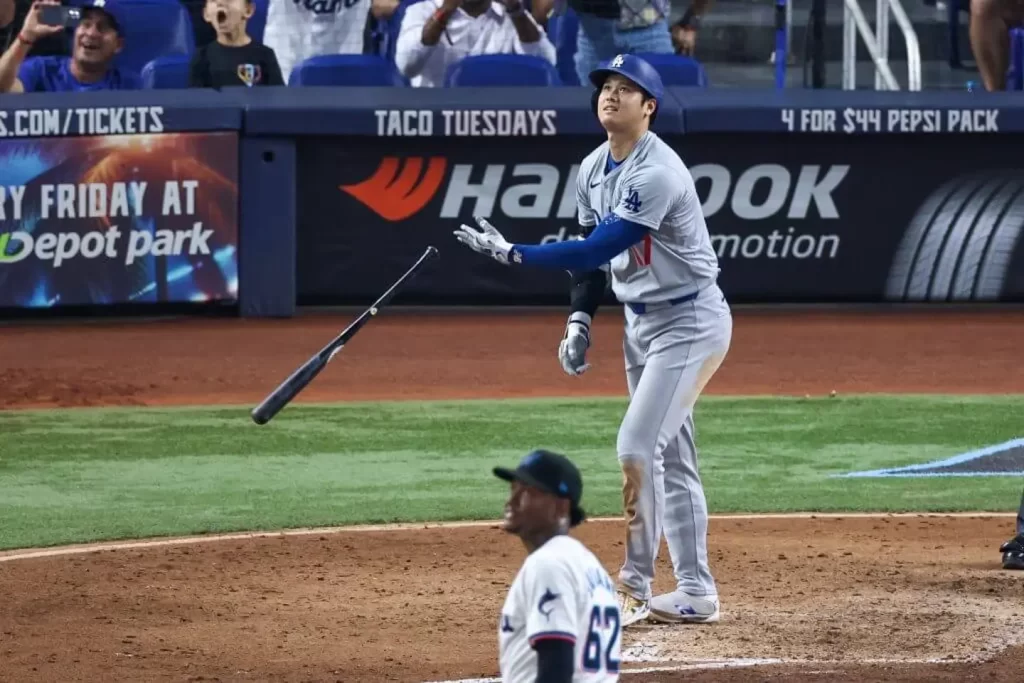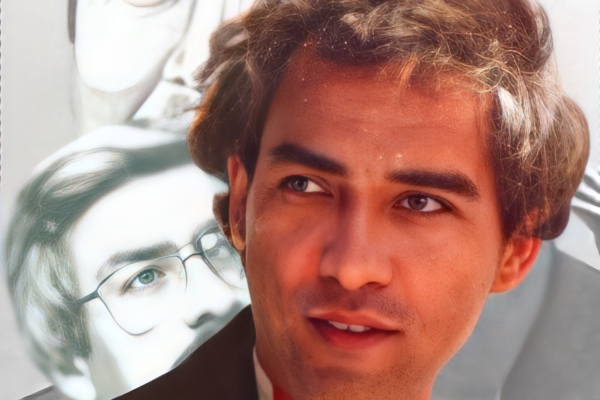I came to town to promote my books about a legendary baseball player, including one titled ‘The Best There Ever Was.’ I saw a ball game while here. And I wound up leaving feeling like I had prematurely written that book or that I was meant to write volume two.
It was the kind of day that legends are made of, though few of us ever believe we will live to see them. Yet here I was, bearing witness to a feat so unprecedented that even the great prophets of yore would struggle to foretell it.
Shohei Ohtani, the marvel from Japan, had just done the impossible: a 50/50 season, stamped with a performance that stretched the very limits of what any man could do upon a baseball diamond.

Imagine, if you will, a field in Miami bathed in sunlight so thick it clung to your skin like summer molasses, while Ohtani strolled to the plate with the casual air of a man heading to his front porch to rock away the afternoon.
But Ohtani was not here to sit idly by—no, he was here to rewrite the laws of the game. And rewrite them he did, as though he were not merely participating in baseball, but narrating it, authoring each moment with the precision of a master craftsman.
His first act was simple, understated. A line-drive double, mind you, not a mere whisper of a hit, but a shot that collided with the outfield wall in right-center as if it had business being there. Then came the real magic—a stolen base, his 50th of the season, taken with the grace and ease of a pickpocket in the Louvre.

He wasn’t done. Before the crowd had time to draw breath, he’d swiped third base as well, casually collecting stolen base No. 51. It seemed that for Shohei Ohtani, nothing was ever enough.
In my younger days, I might have called it absurd to think a man could dominate on the mound, as Ohtani has in the past and will again in the future, and also take over the batter’s box and dominate there as well. It smacks of overindulgence, like Mark Twain riding into town on a steamboat and expecting to out-talk the local gossips. Yet here was Ohtani, not merely excelling but exceeding the wildest dreams of every player who ever swung a bat or lobbed a ball.
And so the game unfolded, with each inning serving as a new chapter in the epic of Ohtani. There was a single, a double, a towering 438-foot home run that seemed to defy the laws of gravity, and then, just when the Miami crowd thought they had seen it all, he did it again. A second home run, this one longer, harder, as though to challenge the heavens to catch it. A third blast followed soon after, a Herculean swing sending the ball soaring into the ether, where gods and demigods alike watched in awe.
Ohtani, you see, wasn’t just playing baseball anymore. No, he was serenading the game, turning it into something akin to high art. Michelangelo had his David, da Vinci his Mona Lisa, and Ohtani—well, Ohtani has baseball. There is a poetic rhythm to his movements, a kind of delicate dance where each swing, each sprint, is a verse in a sonnet too complex for mere mortals to fully comprehend.
One might argue that baseball, with its long innings and slow pace, is an old man’s game, something you watch leisurely as you sip lemonade on a warm evening. But Ohtani? He’s transformed it into a symphony. There was something distinctly romantic in how he carried himself, as though each at-bat, each stolen base, was his love letter to the sport. And like all great romances, this one left you breathless.
Art Buchwald, were he still among us, might have sat in the press box this afternoon, cigar clenched between his teeth, shaking his head in disbelief. “It’s as if Babe Ruth woke up in 2024 and decided he hadn’t done enough,” Art might have said, his eyes twinkling with mischief.
And Twain? Well, you could almost hear him narrating from the great beyond, describing Ohtani’s feats with that trademark drawl, wondering aloud how one man could do all this in a single day, let alone a season.
In truth, no one knew what to say. Ohtani had broken through the barriers of baseball’s history, inventing a new category all for himself. Three home runs, two stolen bases, six hits, and ten RBIs in a single game—that was his gift to us this afternoon. As he rounded the bases for his final curtain call, the Marlins’ pitcher, poor soul, must have felt like the butt of a cosmic joke. Here he was, a mere mortal, facing a figure who might as well have been carved from Mount Olympus itself.
And yet, through all of this, there was a kind of humility about Ohtani. When asked afterward how it felt to make history, he laughed—a soft, genuine chuckle that rippled through the crowd like a sigh. “I have no idea where this came from,” he said, sounding as though he’d merely stumbled upon a few home runs while out for a stroll. “But I’m glad it was going well today.”
Well, “going well” is one way to put it. For the rest of us, it was a day that defied the imagination. Ohtani hadn’t just raised the bar for future players—he’d shot it into the stratosphere. And as I left LoanDepot Park, I was feeling a little lighter, a little more hopeful for what humanity might yet achieve, I couldn’t help but think: this is how legends are born. With a smile, a swing, and a story too good to be true. But in the case of Shohei Ohtani, truth, it seems, has a way of outshining fiction.
And so, as the sun dipped below the Miami skyline, the world knew that something extraordinary had taken place. Not merely a game of baseball, but a moment, a flash in time, where the impossible became possible, and where one man dared to do what no one had done before.
Shohei Ohtani, they’ll say, was the greatest of them all. And on this Thursday in Miami, he proved it beyond a shadow of a doubt.
TONY CASTRO, the former award-winning Los Angeles columnist and author, is a writer-at-large and the national political writer for LAMonthly. org. He is the author of “Mantle: The Best There Ever Was”. He can be reached at tony@tonycastro.com.





